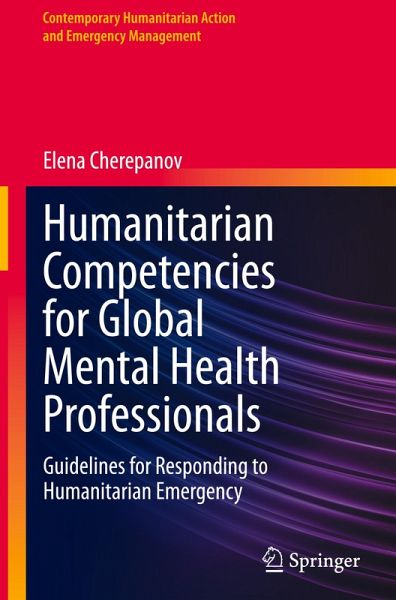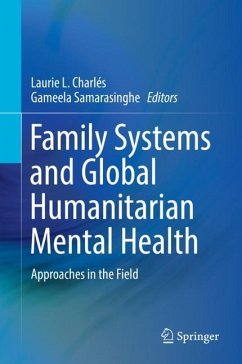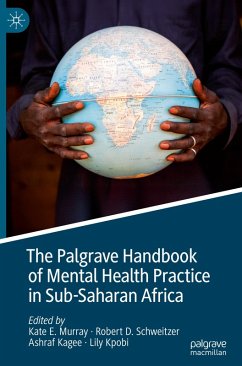
Humanitarian Competencies for Global Mental Health Professionals
Guidelines for Responding to Humanitarian Emergency

PAYBACK Punkte
38 °P sammeln!
This book provides a comprehensive guidance for mental health professionals to humanitarianism and humanitarian culture. When responding to disasters, wars, famines, political violence and other humanitarian emergencies, mental health providers join other multidisciplinary and multisectoral humanitarian actors coming from around the world and united by a common purpose of saving lives and eliminating suffering. This book orients globally minded mental health and human services providers to the professional and personal challenges they can face and equips them with core humanitarian competencie...
This book provides a comprehensive guidance for mental health professionals to humanitarianism and humanitarian culture. When responding to disasters, wars, famines, political violence and other humanitarian emergencies, mental health providers join other multidisciplinary and multisectoral humanitarian actors coming from around the world and united by a common purpose of saving lives and eliminating suffering. This book orients globally minded mental health and human services providers to the professional and personal challenges they can face and equips them with core humanitarian competencies: the understanding of the context of humanitarian work, the knowledge of relief systems, and best practices.
Familiarity with the guidelines and regulations is essential for establishing effective collaborations and conducting contextually appropriate and ethical interventions, avoiding duplication of services, minimizing fragmentation, and reducing risks for all involved. Therecognition of tremendous differential power and the extreme vulnerability of people served call for the highest standards and integrity of conduct and practice as the price for an ethical indiscretion in a humanitarian emergency can be very high. Humanitarian competencies mitigate risks associated with aid work in the increasingly polarized and politicized world. This mentally and morally demanding environment emphasizes the importance of peer support, self-awareness and self-care to manage fantasies and prevent burnout.
The book is written by a global mental health expert with over 20 years of experience responding to international humanitarian emergencies and teaching theory and practice of global mental health in academic settings. In this volume, Dr. Elena Cherepanov combines empirical evidence with academic rigor to share unique insights and original observations with mental health professionals interested in learning the nuts and bolts of humanitarian action. The author also reviews ethically questionable practices, emerging myths and misconceptions in global mental health work and suggests protocols for negotiating ethical and moral dilemmas in the humanitarian situation.
Familiarity with the guidelines and regulations is essential for establishing effective collaborations and conducting contextually appropriate and ethical interventions, avoiding duplication of services, minimizing fragmentation, and reducing risks for all involved. Therecognition of tremendous differential power and the extreme vulnerability of people served call for the highest standards and integrity of conduct and practice as the price for an ethical indiscretion in a humanitarian emergency can be very high. Humanitarian competencies mitigate risks associated with aid work in the increasingly polarized and politicized world. This mentally and morally demanding environment emphasizes the importance of peer support, self-awareness and self-care to manage fantasies and prevent burnout.
The book is written by a global mental health expert with over 20 years of experience responding to international humanitarian emergencies and teaching theory and practice of global mental health in academic settings. In this volume, Dr. Elena Cherepanov combines empirical evidence with academic rigor to share unique insights and original observations with mental health professionals interested in learning the nuts and bolts of humanitarian action. The author also reviews ethically questionable practices, emerging myths and misconceptions in global mental health work and suggests protocols for negotiating ethical and moral dilemmas in the humanitarian situation.












